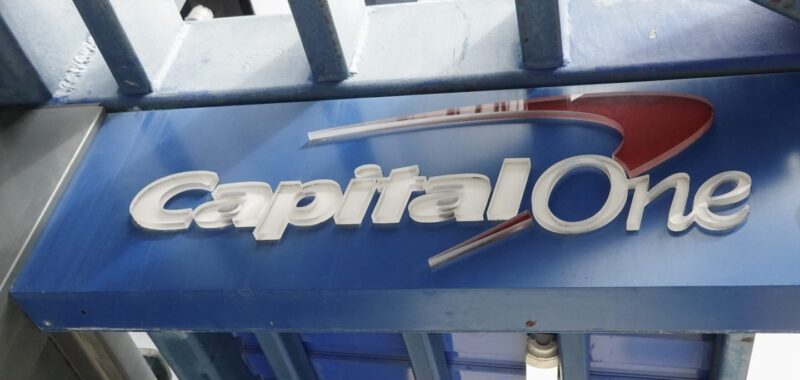News that Capital One has struck a deal to buy Discover shook up the normally quiet President’s Day banking holiday on Monday, teeing up the possibility of making Capital One the nation’s largest credit card issuer.
The Wall Street Journal reported the potential merger on Monday, followed by other outlets like Bloomberg and the New York Times. Capital One then released a statement confirming the planned acquisition.
Capital One Financial Corp., based in MacLean, Virginia, is the nation’s ninth-largest bank by total assets, with 259 physical branch locations, 55 “Capital One Cafes” across the country and a major online banking operation. Discover Financial, based in Riverwoods, Illinois, is a mostly online bank with a single physical branch in Delaware. The all-stock deal is valued at $35.3 billion.
Is Discover on board?
Michael Rhodes, CEO and president of Discover, touted the deal in Capital One’s press release: “The transaction with Capital One brings together two strong brands with enhanced ability to accelerate growth and maximizes value for our shareholders, enabling them to participate in the tremendous upside of the combined company.”
What happens next?
Bank mergers must be approved by bank regulators and by shareholders of each company. If the deal goes through, Capital One estimates that it will close in late 2024 or early 2025.
What would it mean for customers?
During the approval process, little is expected to change as the companies continue to operate independently. Even if the deal is approved, though, current customers may see little effect.
Who doesn’t want to be rewarded?
Create a NerdWallet account for personalized recommendations, and find the card that rewards you the most for your spending.

“I think it’s not going to be a big change for credit card customers,” says David Robertson, editor and owner of the Nilson Report, a payment card industry trade journal. Discover cards, he says, are primarily cash-back cards, while Capital One offers a variety of rewards cards. A merger, Robinson says, “might allow for better rewards programs for both companies.”
While the Wall Street Journal reported that Capital One plans to keep the Discover name on at least some cards, details have not been confirmed by either company. Likewise, there is no detail yet on how banking customers will be affected.
Why merge?
Item no. 1: Discover’s payment network
Transactions on Capital One cards are processed over the Visa and Mastercard payment networks. Discover, however, operates its own network, making it both a card issuer and a payment processor, similar to American Express. Robertson says acquiring a payment network and building direct relationships with more merchants is likely a driving factor in Capital One’s acquisition, which puts a 26.9% premium on Discover’s Feb. 16 closing stock price.
”From Capital One’s founding days, we set out to build a payments and banking company powered by modern technology,” Richard Fairbank, founder and CEO of Capital One, said in the news release. “Our acquisition of Discover is a singular opportunity to bring together two very successful companies with complementary capabilities and franchises, and to build a payments network that can compete with the largest payments networks and payments companies.”
In addition, Robertson notes, there is not a great deal of overlap between the two banks’ customer bases. “One would assume that everyone that has a Discover Card also has a Visa or MasterCard,” he says. “Capital One may get access to that spending.”
Capital One is the fourth largest credit card issuer in the United States by loan volume; Discover is ranked sixth, according to Nilson Report data. Combined, they would nudge ahead of Chase to become the largest card issuer.
Sheer economy of scale is another factor. “Should [the merger] occur, Capital One would be the largest credit card issuer” as measured by outstanding debt, says Robertson.

